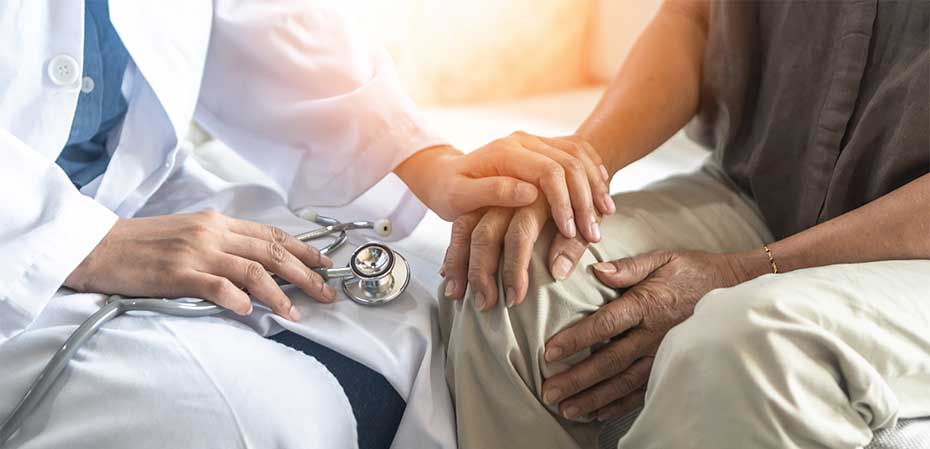5 Essential Things That Should Be Included In Your Aftercare Plan
An aftercare plan is a set of strategies designed to reduce your risk of relapse after inpatient rehab. While these strategies vary depending on your needs, most aftercare plans include outpatient treatment, specialized therapy, peer support groups, wellness activities, and transitional housing.

After you complete an addiction treatment program, you must work hard to maintain your recovery. To make this journey easier, your treatment team will help you create an aftercare plan.
An aftercare plan is a set of strategies designed to reduce your risk of relapse. Although these plans vary depending on the person’s needs, most of them include these five strategies.
1. Outpatient Treatment
While living at an inpatient treatment facility, you don’t have to worry about common relapse triggers such as alcohol advertisements, relationship troubles, and work-related stress.
Once you move out, though, these triggers pose a serious threat to your sobriety. That’s why most aftercare plans include outpatient treatment.
Outpatient treatment features many of the same services found in inpatient treatment, including individual therapy, group therapy, and medication-assisted treatment (MAT). These treatments help you strengthen your recovery skills as you readjust to normal life.
Types Of Outpatient Care
The amount of times you visit an outpatient rehab facility depends on the type of outpatient treatment you choose. There are three main types:
- standard outpatient programs (OPs), which generally include at least one visit per week
- intensive outpatient programs (IOPs), which generally include multiple visits per week
- partial hospitalization programs (PHPs), which generally include visits most days of the week
Your treatment team and support system can help you decide which option may work best for you.
2. Specialized Therapy
For most people, ongoing therapy plays an essential role in long-term recovery. As mentioned above, the majority of outpatient treatment plans include therapy to help you manage triggers and cravings.
While this type of therapy is important, some people also need other forms of therapy to address specific issues that contribute to their substance misuse. The most common types of specialized therapies for people in recovery include:
- grief counseling
- trauma-focused therapies, such as eye movement desensitization and reprocessing (EMDR) therapy and trauma-focused cognitive behavioral therapy
- exposure therapy, which can help you cope with fears linked to mental disorders like obsessive compulsive disorder (OCD) and posttraumatic stress disorder (PTSD)
You might be able to access these specialized therapies through your outpatient treatment program, especially if it offers dual diagnosis treatment. Dual diagnosis treatment addresses addiction and co-occurring mental health disorders at the same time.
In other cases, you will have to seek these therapies from other providers. Your treatment team will explain your options as you create your aftercare plan.
3. Peer Support Groups
Throughout your addiction recovery journey, it’s important to have a strong support network. Most support networks include friends, family members, and treatment providers.
While these individuals can offer much-needed care, they may lack personal experience with addiction. As a result, you might feel misunderstood at times.
That’s where peer support groups come in. In these groups, you can discuss your experiences and coping strategies with other people navigating recovery.
Sponsor
You may even find a sponsor. A sponsor is someone further along in recovery who will check in with you on a regular basis. During each check-in, you and your sponsor will talk about your progress and any recovery-related challenges.
Recovery Support Groups
The most popular recovery support groups are 12-step programs such as Alcoholics Anonymous (AA) and Narcotics Anonymous (NA). Other options include:
Most support groups hold meetings both in person and online.
4. Wellness Activities
When recovering from any disease, you must take care of yourself. That’s why your aftercare plan should include a variety of activities that boost your physical and mental health.
For example, you need to get enough sleep. Most people require at least seven hours of sleep per night. A good night’s rest gives you the energy you need to manage drug cravings and other recovery-related issues.
Exercise
You should also get plenty of exercise. The majority of adults need at least 150 minutes of moderate-intensity activity per week.
If you don’t feel like hitting the gym, take a walk around the block. All forms of exercise trigger the release of endorphins, which are hormones that make you feel happy and relaxed. This natural high can help keep your mind off drugs.
Nutrition
In addition, your aftercare plan may feature personalized nutritional advice. Like sleep and exercise, a healthy diet helps your body withstand the stress of recovery.
Relaxation
Finally, your aftercare plan should include a variety of relaxing activities. Depending on your interests, these activities may include:
- arts and crafts
- journaling
- meditating
- yoga
- reading
- spending time in nature
5. Transitional Housing
Once you finish inpatient treatment, you may have trouble readjusting to your normal routine, especially if your home life feels stressful or unsupportive.
In that case, your aftercare plan should include a sober living home. Sober living homes (also known as halfway houses) are a form of transitional housing for people recovering from addiction.
In this safe, sober environment, you get the chance to boost your recovery skills before you move back home.
You and the other residents can hold each other accountable as you strive to meet your recovery goals, such as getting a job, repairing damaged relationships, and finding permanent housing. Your treatment team can help you find the best sober living home for your situation.
To learn more about aftercare planning, please reach out to Ohio Recovery Center. Our board-certified healthcare providers offer a variety of substance abuse treatment options to help you or your loved one build a fulfilling, drug-free life.
- Centers for Disease Control and Prevention https://www.cdc.gov/sleep/about_sleep/how_much_sleep.html
- Centers for Disease Control and Prevention https://www.cdc.gov/physicalactivity/basics/adults/index.htm
- National Institute on Drug Abuse https://nida.nih.gov/publications/drugs-brains-behavior-science-addiction/treatment-recovery

